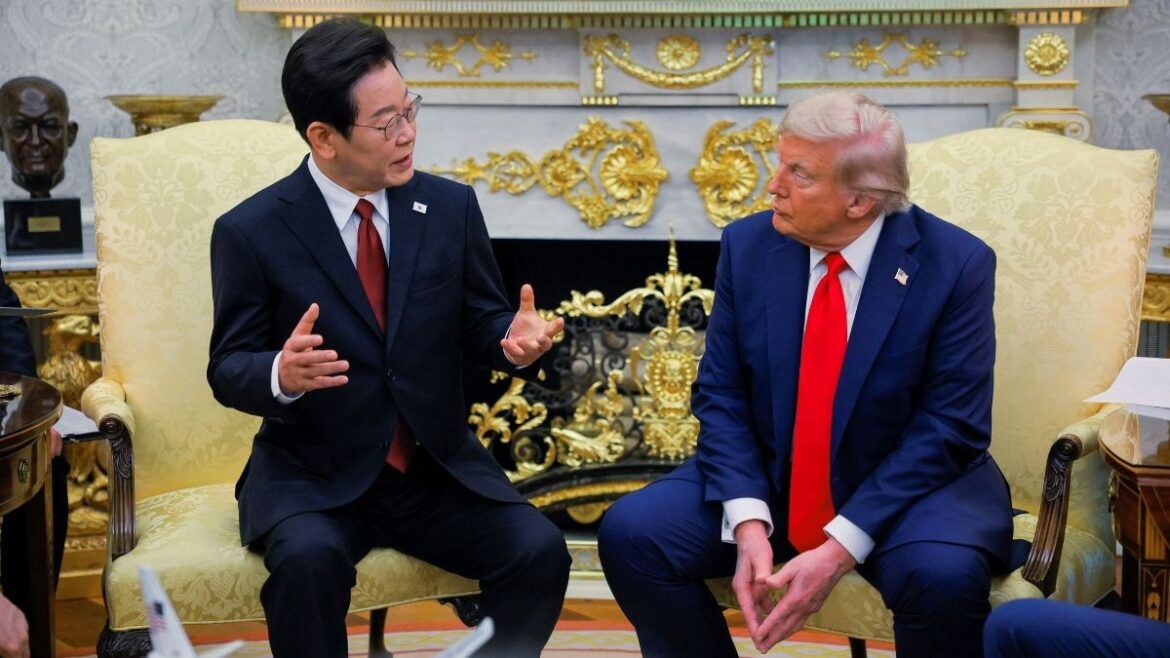During talks at the White House, US President Donald Trump highlighted the “comfort women” issue while meeting South Korean President Lee Jae Myung. The discussion, which also covered security, North Korea and economic cooperation, touched on one of the most delicate historical disputes between Seoul and Tokyo, as survivors and activists continue to call for greater accountability from Japan.
US President Donald Trump on Monday raised the sensitive issue of “comfort women” during his White House meeting with South Korean President Lee Jae Myung, a discussion otherwise centred on security ties, North Korea and economic cooperation.
While seated beside Lee, Trump said, “The whole issue of the women. Comfort women. Very specifically. We talked and that was a very big problem for Korea, not for Japan. Japan was, wanted to go, they want to get on. But Korea was very stuck on that.”
STORY CONTINUES BELOW THIS AD
The term “comfort women” refers to women and girls forced into sexual slavery by Japan’s military during WWII.
Historians estimate that hundreds of thousands were subjected to the practice, which is regarded as one of the most extensive cases of state-sponsored human trafficking in contemporary history. The use of the word has long been questioned for downplaying the gravity of the atrocities.
Trump’s words came as Seoul and Tokyo continue to contend with the legacy of Japan’s colonial domination over the Korean peninsula.
According to Reuters, President Lee recently told Japanese media that, while the 2015 agreement on the issue, which saw Tokyo issue an apology and contribute 1 billion yen ($6.8 million) to a victims’ fund, was “undesirable to overturn,” it was still “very difficult to accept” for many South Koreans.
He termed the comfort women issue as “heartbreaking” and encouraged Japan to maintain dialogue with survivors.
According to AFP, Trump spoke bluntly about the issue during his larger conversations with Lee, even as the South Korean leader attempted to highlight reconciliation measures, including a symbolic visit to Tokyo before travelling in Washington.
Japan, for its part, believes the 2015 pact has “irreversibly” resolved the issue if both countries keep their pledges.
The issue of comfort women remains one of the most politically contentious parts of Korea-Japan ties, with survivors and campaigners calling for greater acknowledgement and accountability from Tokyo. Despite local cynicism about previous agreements, Lee has described Japan as a “very important country” and stated his ambition to enhance trilateral cooperation with Tokyo and Washington.
STORY CONTINUES BELOW THIS AD


AloJapan.com